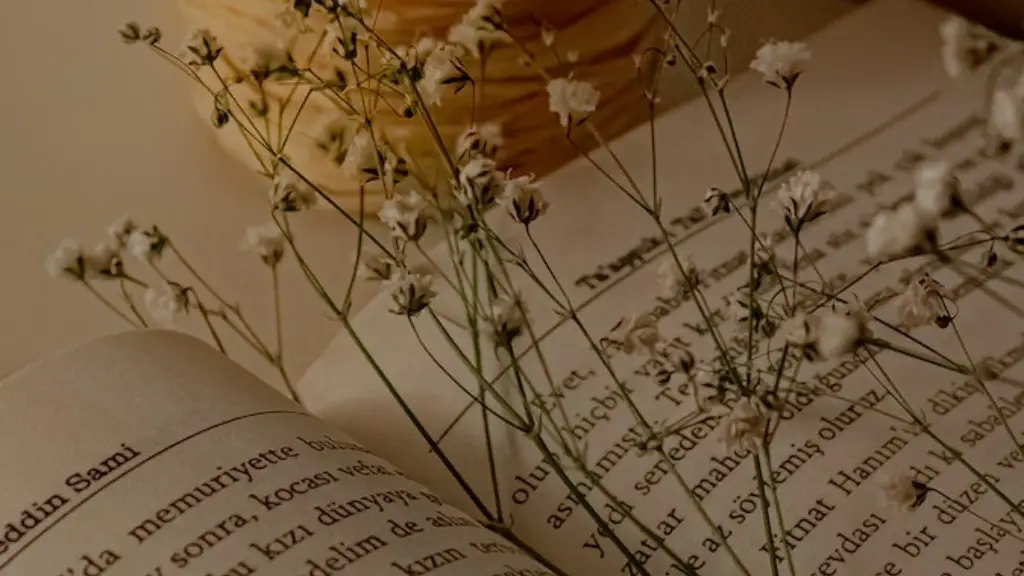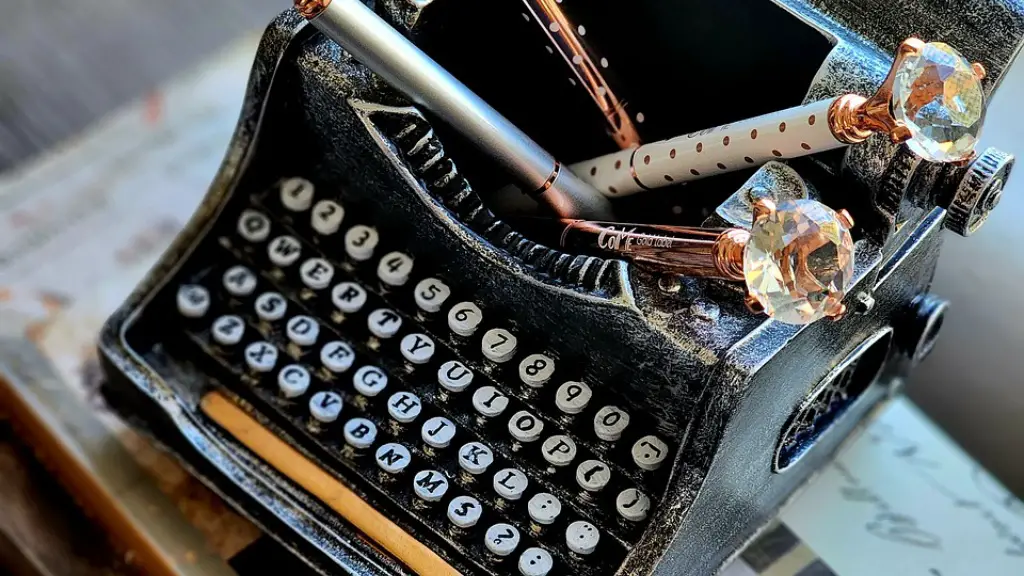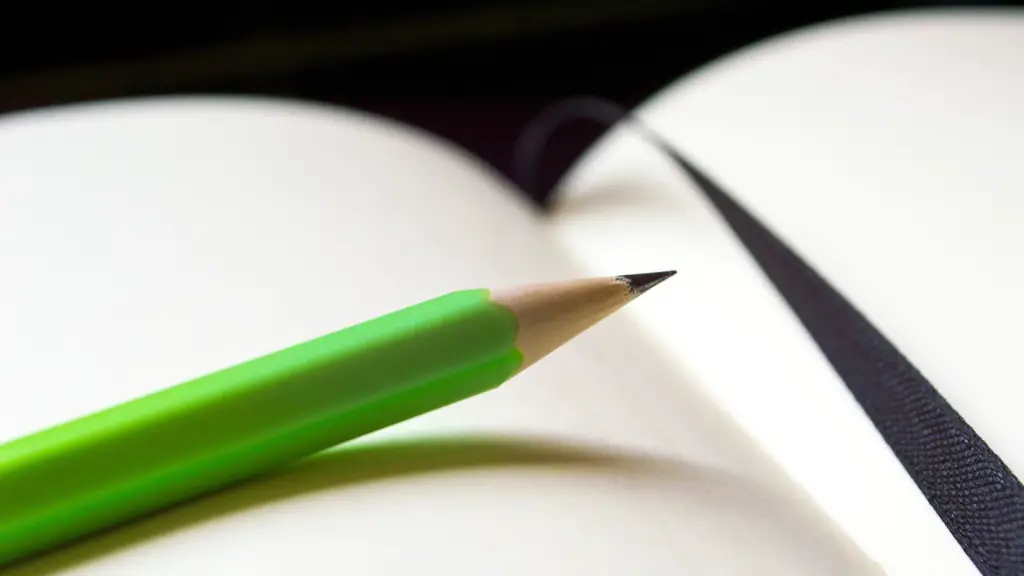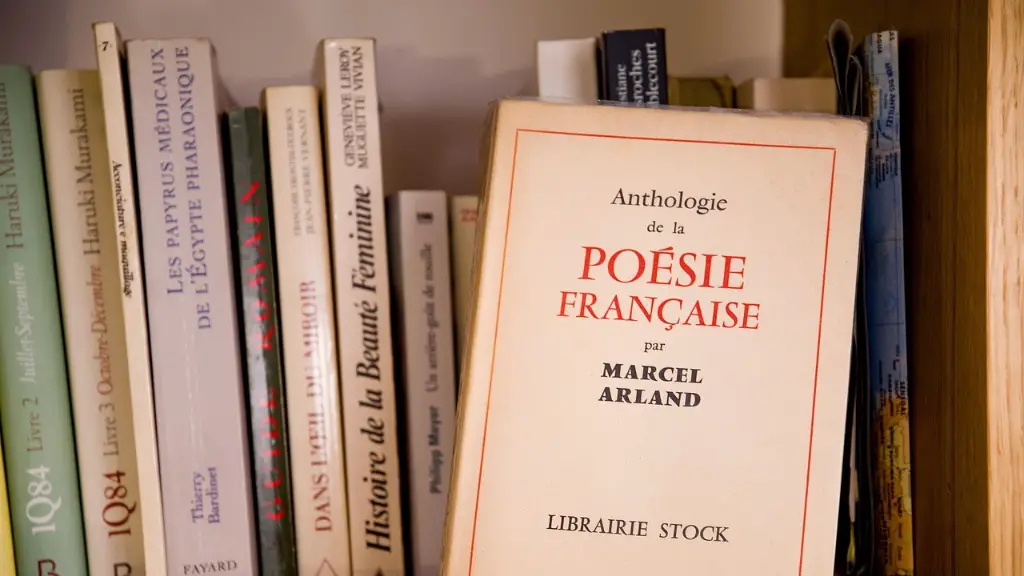Epic poetry is an ancient form of storytelling that dates back to the ancient Sumerian and Babylonian civilizations. It is a narrative poem that tells a tale of heroic feats, usually involving gods and warriors. The epic themes of epic poetry have evolved over time, but the common thread is a focus on themes of bravery, courage, loyalty, and sacrifice. Epics have been used to teach important lessons in moral development and social values, while also entertaining and inspiring people.
In modern times, the most iconic examples of epics are Homer’s Odyssey and Iliad.These tales depict the heroic adventures of Odysseusand the Greeks, respectively. Within these tales, characters are presented as larger-than-life heroes, who possess supernatural powers, such as the ability to manipulate time and space. Additionally, epics often have lengthy descriptions of battle scenes, gods and goddesses, and magical creatures, which offer readers a plethora of intricate facets to explore.
In most cases, epics are recited orally in verse form by bards orpoets who use poetic devices such as similes, personification, and allegory to help the audience connect with the story’s characters and plot. Epics typically include repetition of phrases and themes, which can help emphasize the central ideas and themes of the tale. Because epics are so long, poets often divide their stories into cantos orbooks, with each containing a specific story line.
Epic poetry has been analyzed and studied by scholars from many different countries and cultures. Research has suggested that epic poetry was originally used as a form of oral communication to celebrate heroes and legends, while also passing down lessons and values. Critics have suggested that the epic form follows a familiar “hero’s journey” narrative pattern, in which a hero goes on a quest to discover his true destiny. Over time, the epics have evolved to include deeper moral and social lessons, while still entertaining and inspiring its audience.
Epic poetry is often the subject of contemporary literature and evokes emotions in its audience, whether they are contemporary or of a much earlier time period. Today, epics are often used to tell stories that represent the values and issues of the time. Modern epics often touch on topics of colonialism, racism, poverty, and war, and how these influence people’s lives.
Despite the enormous impact of epics, not all stories follow this narrative pattern. There are many examples of shorter minimalist poems that focus on daily life and the individual’s journey through life, rather than a grand quest. The focus can be on an individual’s reflections or experiences, without the need to include gods, mythical creatures, or battles.
Overall, epic poetry continues to be a powerful and influential form of storytelling. To many, epics are timeless and transcend time and culture, offering readers a chance to explore the depths of mankind’s hopes and fears, while being entertained and inspired.
Evolution of Epic Poetry
Epic poetry has evolved greatly over the centuries, adapting to fit the needs of various cultures and the changing social values. In Europe, the epic was a favorite form of literature among the elevated classes, such as nobility and royalty. In literature, the epic was often used to address political topics and to interpret the enlightenment and the modern world. As such, epics evolved to include more complex issues and themes, such as racial and social inequalities.
In early modern times, epic poetry shifted from being primarily a vehicle for celebration and faith, and became a tool for social change. Writers began to use the epic to challenge injustice, often creating parables to explore the political, spiritual, and social issues of their times.
In the hands of modern storytellers and filmmakers, the epic genre has been able to dig deeper and explore complex and evolving relationships between humans and the natural world, as well as between different cultures. These stories often explore the boundaries between civilization and nature, with characters often embarking on journeys to explore these boundaries.
Today, there has been a renewed interest in the epic form in literary circles. The epic has become a vehicle of social commentary and self-expression, in which authors are free to explore their ideas and experiences on a much grander scale.
Impact of Epic Poetry
Epic poetry has had an enormous impact on literature, art, and culture throughout the centuries. As an oral tradition, epic poetry served as a link between cultures and allowed people to communicate values, wisdom, and stories to one another. Moreover, epics were used to entertain and inspire people, providing an escape from daily life. In this way, epics served as a unifying force, connecting people from different backgrounds.
Epic poetry has been a source of inspiration to many writers and filmmakers throughout the years. For example, J.R.R. Tolkien’s Lord of the Rings epic trilogy was heavily inspired by Homer’s Odyssey. Similarly, filmmakers such as George Lucas, who created the Star Wars saga, have used epic themes to explore the struggles of good and evil, while offering lessons in timely social issues.
Epic poetry has also had a strong influence on modern music. Hip-hop artists have often used epic themes to express their views and perspectives on social issues. Likewise, rock opera bands have explored epic themes, often using a grandiose scale to illustrate human emotion and complex issues.
Modern Interpretations of Epic Poetry
Modern interpretations of epic poetry draw from many sources and can take many forms. An example of a modern interpretation of the epic form is the graphic novel. In this form, the story is portrayed visually in comic book form, often illustrating complex themes and issues. Graphic novels often explore political and social themes related to contemporary society, while also conveying important lessons in humanity.
Other modern interpretations of the epic form include films, television series, and documentary films. In films, directors often use the epic format to portray stories of conflict and struggle, while also exploring timeless issues and themes. Television series often use the epic form to narrate stories that are more ambitious in scope, with episodes exploring themes such as fate and destiny. Documentary films also explore epic themes and stories, often approaching their topics from an academic perspective.
The internet has also opened up a new realm for exploration of epic themes and stories. Writers, filmmakers, and other creatives are now able to explore and share their ideas on a much larger scale. With the rise of social media, viral videos and online videos, epic stories can be easily shared worldwide and discussed in real time.
Notable Epic Poets
Throughout the centuries, there have been many great poets and storytellers who have explored and created works of epic poetry. Homer, Virgil, and Dante are perhaps the most well-known epic poets in history. Other notable authors of epic poetry include Ovid, John Milton, William Blake, Gabriel García Márquez, and J.R.R. Tolkien. Each of these authors has left an indelible mark on the world of literature and is remembered for their contributions to epic poetry.
In modern times, there is a resurgence of interest in epic poetry, and many contemporary poets have looked to the tradition for inspiration. Some notable poets who continue to explore and expand the epic form are Margaret Atwood, Czeslaw Milosz, and Toni Morrison. In many cases, their works are seen as a continuation of the ancient and classical concepts of epic poetry, but with a more modern spin.
Conclusion
Epic poetry is an ancient form of storytelling that has evolved over time, while inspiring and entertaining its audience in the process. It is a narrative poem that follows a traditional “hero’s journey” narrative pattern. Today, modern authors and filmmakers often use epic themes to explore timeless topics and issues. Epic poetry has had a major influence on literature and art throughout the ages, and continues to remain a powerful and influential form of storytelling.





